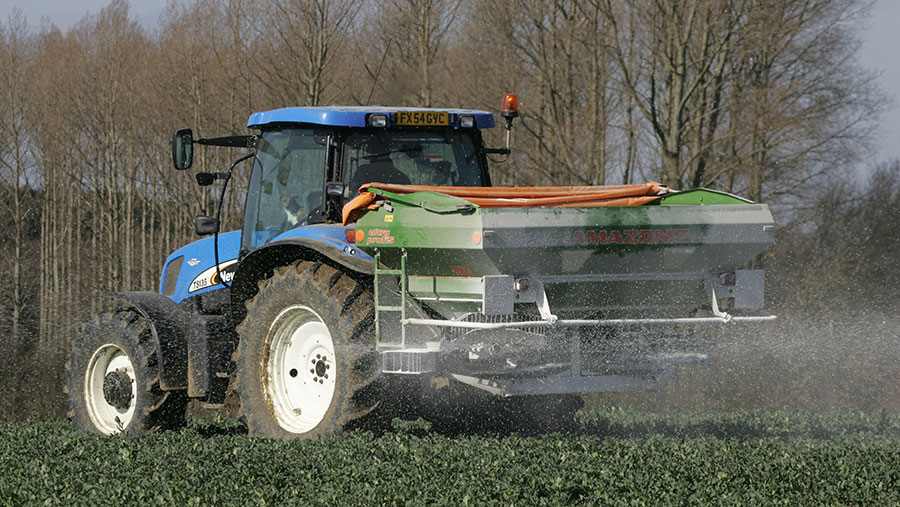UK arable crops’ greenhouse gas emissions ‘lower than thought’
 © Tim Scrivener/Rex Features
© Tim Scrivener/Rex Features Greenhouse gas emissions produced by the UK’s arable sector are significantly lower than previously thought, according to a report.
Nitrous oxide is an important greenhouse gas, contributing more than 40% of agriculture’s greenhouse gas emissions.
Previously, production levels of nitrous oxide from soil were calculated at 1% a unit of nitrogen (N) applied.
However the five-year average Minimising Nitrous Oxide (MIN-NO) research study estimate for UK arable land is 0.46% of N applied, taking into account UK soil and climatic conditions.
See also: Farmers cannot ignore threat of climate change
Following intensive three-year field-based experiments across arable areas in England and Scotland and using industry data from commercial farms, researchers used models to estimate a national picture of emissions due to major UK arable crops and their products.
The MIN-NO research was conducted through a combination of 23 government, academic, farming and commercial partnerships and found emissions due to nitrogen fertiliser use in UK arable land to be less than half the level previously estimated using IPCC 2006 emission factors – which is the traditional measure.
The report also found that the greenhouse gas intensity a tonne of UK harvested wheat was 20% lower than previously estimated, along with reduced intensities for harvested rapeseed and sugar beet.
The report is likely to have implications for the new UK greenhouse gas inventory, which estimates all greenhouse gas emissions and sinks, and will also be submitted to the European Commission.
“This extensive research shows that the greenhouse gas reductions for using UK-grown feed wheat and oilseed rape to produce renewable fuel are particularly relevant,” said Clare Wenner, head of renewable transport at the Renewable Energy Association.
“It will help to demonstrate their sustainability even more.”
Richard Laverick, AHDB chief technical officer, said the project had provided the farming industry with a vital and far more accurate understanding of the behaviour of nitrous oxide emissions in arable agriculture.
“It will help inform all involved in producing for the food, feed and biofuel supply chains.
“The findings are significant and will make a major difference to the UK’s ability to meet sustainability criteria for a range of supply chains.”
Matthew Lockwood, senior research fellow at Exeter University’s energy policy group, said the report would have implications for greenhouse gas reporting and would need to be discussed by The United Nations Framework Convention on Climate Change reporting group.
“This is a good report with sound methodology and has profound implications for greenhouse gas reporting for individual farm systems,” he added
